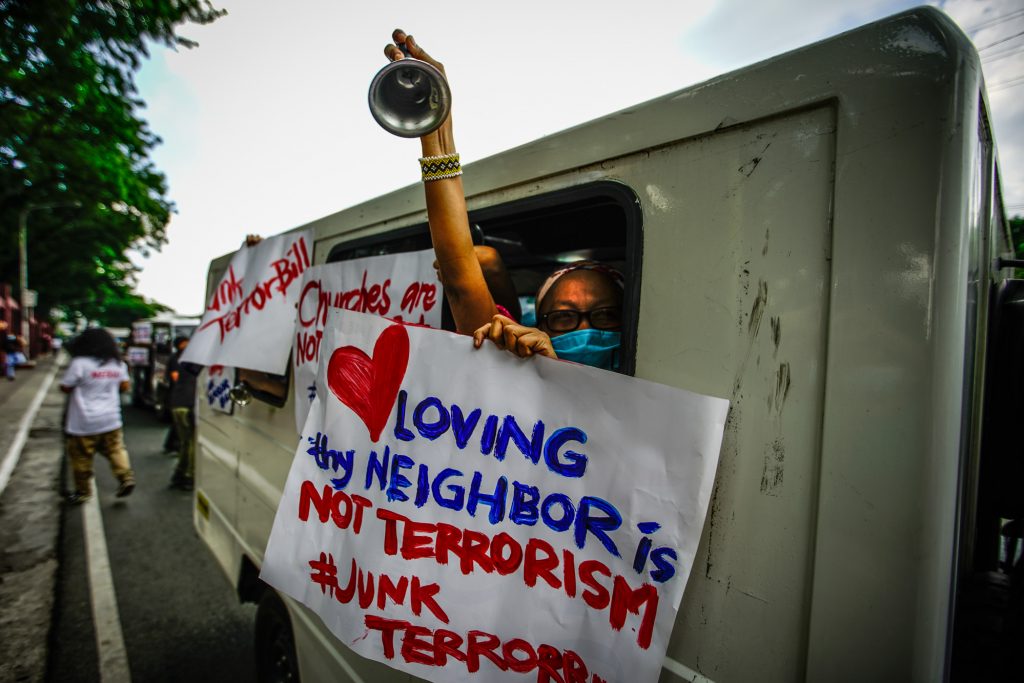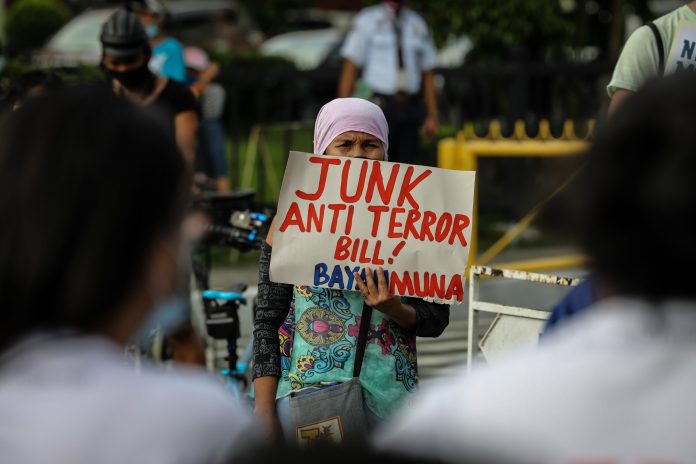Members of the clergy in the Archdiocese of Manila called on President Rodrigo Duterte to heed the appeal of various groups and reject the proposed anti-terror law that awaits his signature.
In a statement released on June 25, the priests said allowing the passage of the bill that has “vague, amorphous and deleterious provisions will only do more harm than good to the people.”
The priests made the call after they made “prayerful discernment, diligent study, critical analysis, and prudent discussion” of the nature and implications of the proposed law.
“We humbly urge President Rodrigo Duterte to heed the plea of different concerned groups calling for the bill’s rejection,” read the priests’ statement.
They assured that they are “against any form of terror or lawlessness and we condemn those engaged in these activities.”
The priests said they believe that “it is the duty of the government to ensure the safety and security of each citizen” but added that the bill “gives draconian powers to State agents.”
“We have reason to fear because of the bill’s ambiguous and expansive provisions leaving them open to arbitrary and whimsical interpretations,” said the church leaders.
“Even legitimate dissent or criticisms, which are signs of a healthy and working democracy, may be misconstrued as inciting to commit a terror act,” they added.
“Weaponizing this measure to silence critics and detractors will give this government a free pass even for its inefficiency, ineptness and abuses,” said the priests.
They called on the proponents of proposed measure not to “trivialize the concerns of those opposed to it.”
“The government should not make as an excuse the upholding of national security while undermining human rights and civil liberties. To do so makes the government terrorist against its own people,” the priests said.
Several influential church groups have earlier expressed opposition to the proposed anti-terrorism law that has been passed by the country’s legislature early this month.
The social action secretariat of the Catholic bishops’ conference described the proposed measure a violation of the rights of people and a mockery of the country’s Constitution.
In its statement signed by Bishop Jose Colin Bagaforo, the social action group called on the Supreme Court to look into the “constitutionality” of the proposed law.
The Philippine Council of Evangelical Churches has also called on President Duterte to veto the proposed measure because it supposedly “imperils” the rights of Filipinos.

In a pastoral statement, the Protestant council said it believes that the bill “should have undergone an extensive process of deliberation” before it was passed.
Heads of some of the biggest Catholic schools in the country also called on the president to veto the controversial bill, which is feared to crack down on the basic rights of Filipinos.
A joint statement signed by eight business organizations led by the Bishops-Businessmen’s Conference for Human Development said the government should focus on fighting the pandemic and help businesses and the people survive the crisis rather than causing divisions.
The business groups said they fully appreciate the need for peace and security but stressed that current threats to national security are already being addressed by existing laws and policies and do not require urgent new legislation.
The proposed Anti-Terrorism Act of 2020 is up for Duterte’s signature after the House of Representatives approved it on third and final reading on June 3 by adopting the Senate version of the bill.
The president has earlier certified the proposed measure as urgent, which allowed the House to fast track its passage.
The anti-terrorism bill seeks to repeal the Human Security Act of 2007 — a law that is “already problematic,” according to United Nations human rights office.









